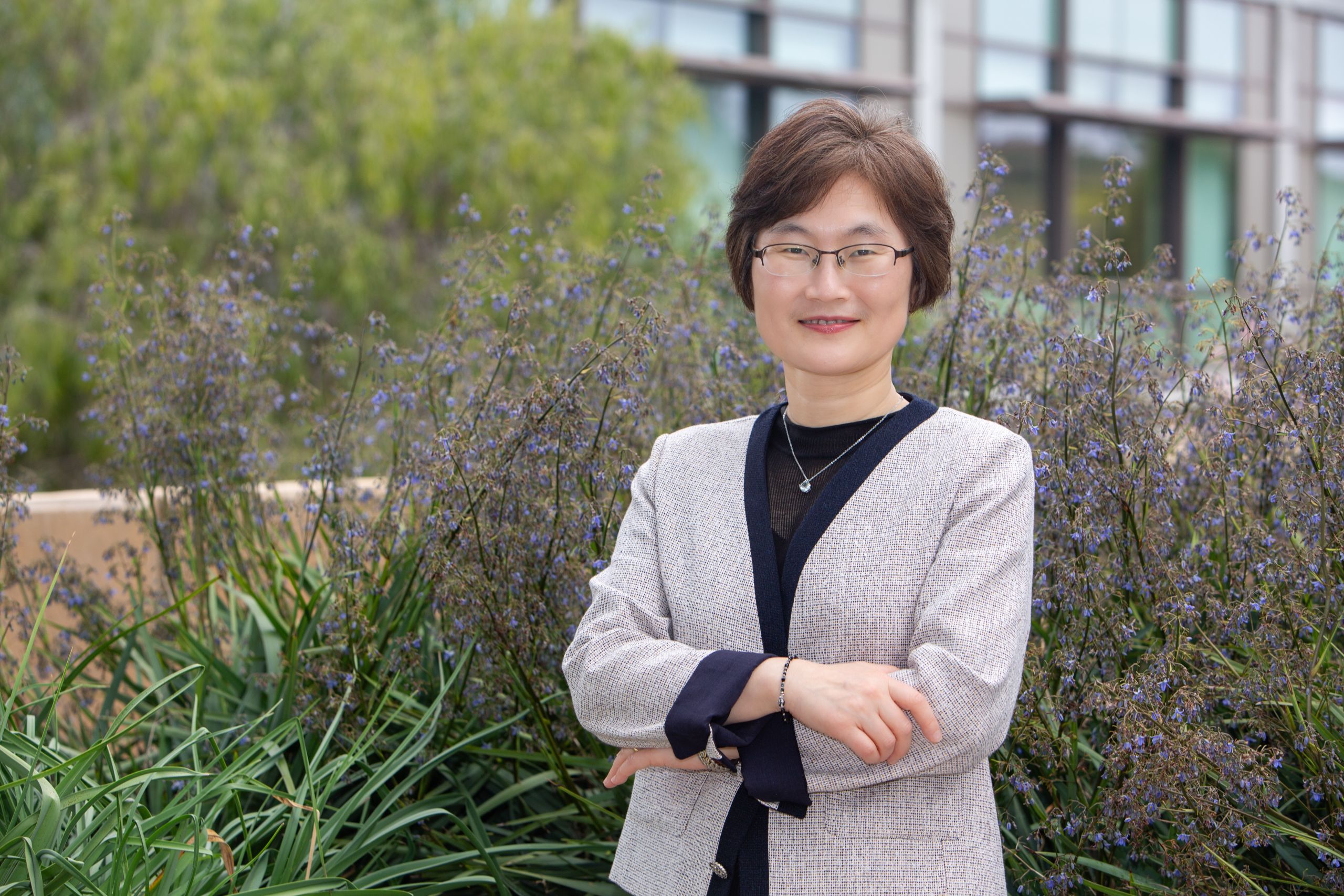 Family caregivers caring for persons with dementia are a notoriously stressed-out population.
Family caregivers caring for persons with dementia are a notoriously stressed-out population.
The coronavirus pandemic has added an additional layer of challenge as adult day-care centers temporarily close and home services go on hold.
“When the stay-at-home order came down, I immediately knew it was going to affect caregivers,” says Jung-Ah Lee, PhD, an associate professor at the UCI Sue & Bill Gross School of Nursing.
“There’s no more support for the family member. It’s a really crazy situation.”
Lee had already been doing a study on family caregiver stress while caring for people with dementia (PWD). Her team of volunteers would conduct home visits, conduct interviews and counsel on communication with someone who has dementia.
After California was ordered to stay at home, she applied for Institutional Review Board (IRB) approval to take the study online while adding another dimension to it. She wanted to ask the caregivers their feelings, fears and thoughts about COVID-19.
The approval came quickly.
How family caregivers are feeling about COVID-19
So far, Lee says, most of the family caregivers are expressing two primary feelings:
- The stress from being the sole caregiver right now is overwhelming
- They worry about getting sick and having nowhere to turn for support
Some caregivers expressed that social distancing hasn’t changed much about their daily lives because they have been doing it alone all along.
How the study supports caregivers
Lee and her team of trained bilingual volunteer nursing students call every study participant once a week to talk for 15-30 minutes. The team has members who speak English, Spanish, Vietnamese and Korean.
The telephone support calls have three goals:
- Listening to the caregiver nonjudgmentally and letting them speak about their feelings.
- Discussing stress, teaching mindfulness techniques and doing deep breathing exercises. “We coach them to do it multiple times a day,” Lee says.
- Building their communication skills and learning how they can do compassionate communication with their loved ones with dementia.
Lee says COVID-19 education is another critical part of the calls. With recommendations changing daily, her team works to keep caregivers informed of them.
“Caregivers really want to know what to do right now, especially if they have to go out shopping or run an errand.”
Each call is tailored to individual needs
The calls don’t follow a script, says Lee. They are tailored to each individual caregiver to address their unique needs.
The calls seem to be working so far. Caregivers look forward to them. One study participant expressed how difficult being isolated at home has been: She and her husband, who has Alzheimer’s disese, used to take walks and socialize.
“She’s very frustrated. So, she really likes our phone calls.”
A key part of the calls is identifying issues the family caregiver may be having with their PWD. Her team provides caregiving education that helps identify and address things such as:
- Nearby family members
- Nearby neighbors
- Behavioral issues
- Medication issues
- Communication issues
How caregivers can get support right now
Often, Lee says, it just comes down to asking the question to get help. Many caregivers don’t want to ask for it.
“Don’t hesitate to ask. For things like groceries and medications, it’s not harmful to ask others for that help.”
Family caregivers for low-income elderly can apply to become an In-Home Supportive Services (IHSS) care provider for their family member, provided they meet the criteria. This can offset some of the financial burden.
In fact, about 70% of IHSS care providers are family members, says Lee.
“Caregivers are doing a lot. They’re taking care of their children, their parents,” Lee says. “I have to keep working on this. This is important.”




Follow Us!